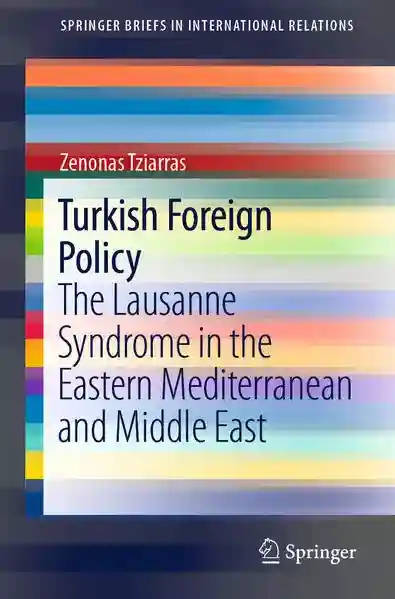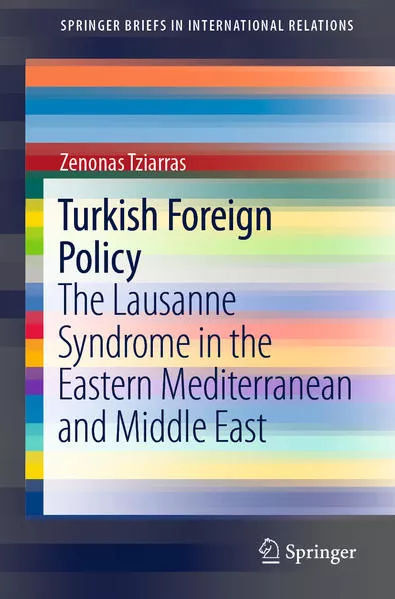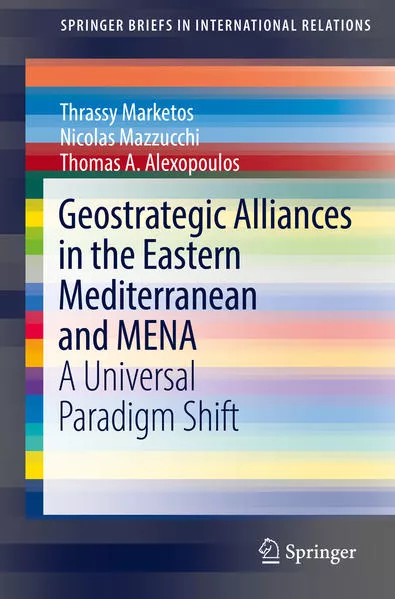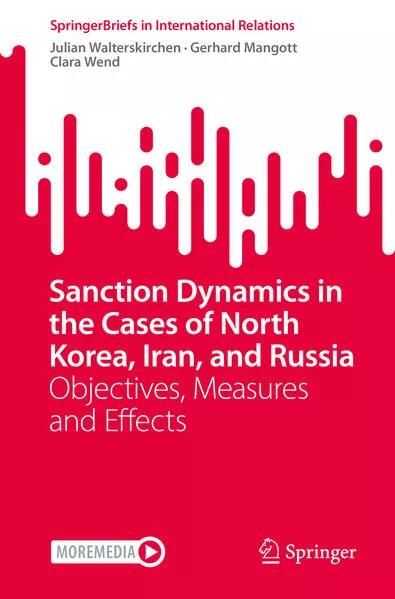Chronologie aller Bände (1 - 3)

Die Reihenfolge beginnt mit dem Buch "Turkish Foreign Policy". Wer alle Bücher der Reihe nach lesen möchte, sollte mit diesem Band von Zenonas Tziarras beginnen. Der zweite Teil der Reihe "Turkish Foreign Policy" ist am 27.01.2022 erschienen. Die Reihe umfasst derzeit 3 Bände. Der neueste Band trägt den Titel "Sanction Dynamics in the Cases of North Korea, Iran, and Russia".
- Anzahl der Bewertungen für die gesamte Reihe: 5
- Ø Bewertung der Reihe: 5
Diese Reihenfolge enthält 3 unterschiedliche Autoren.
- Autor: Tziarras, Zenonas
- Anzahl Bewertungen: 1
- Ø Bewertung: 5.0
- Medium: Buch
- Veröffentlicht: 28.01.2022
- Genre: Politik
Turkish Foreign Policy
In the context of rapid developments in Turkey and its broader geopolitical environment over the past decade, this book examines and conceptualises Turkey’s changing foreign policy towards a more assertive and revisionist paradigm. More specifically it details the rhetorical and practical-political content of what is termed ‘Lausanne Syndrome’; namely, Turkey’s efforts in recent years – under the AKP government – to revise the geopolitical status quo brought about by the Treaty of Lausanne (1923) in its broader neighbourhood.
By employing a Neoclassical Realist theoretical framework and paying particular attention to ideational factors, the book argues that, contrary to the more widely known ‘Sèvres Syndrome’, which predicts a more cautious brand of Turkish foreign policy, the ‘Lausanne Syndrome’ is associated with a different political-ideological current and predicts a more revisionist type of foreign policy behaviour, even though it has emerged out of the same historical circumstances and been triggered by the same external geopolitical factors. The impact of the ‘Lausanne Syndrome’ on Turkey’s foreign policy behaviour is subsequently tested in four case studies from the Eastern Mediterranean and the Middle East: Cyprus, Libya, Syria, and Iraq.
- Autor: Marketos, Thrassy
- Anzahl Bewertungen: 0
- Ø Bewertung:
- Medium: E-Book
- Veröffentlicht: 13.04.2022
- Genre: Politik
Geostrategic Alliances in the Eastern Mediterranean and MENA
This book examines the geostrategic alliances in the Eastern Mediterranean and MENA regions. It analyzes how these alliances transcend stereotyped political and cultural prototypes throughout western Eurasia as the outcome of shifting regional power balances. The authors explain how this development has its foundation mostly in the United States' ‘Pivot to Asia’ policy, resulting in a lower priority ranking of the Middle East for Washington, but also in the emergence of China’s economic incursion on the wider region.
The book looks into and presents different reasons for this paradigm shift: First and foremost, the historical ambitions and conflicting assertions of sovereignty in the region. Then, competition over control of hydrocarbons reserves and pipeline politics, civil wars, and political chaos in certain littoral states. US retrenchment and Russia’s naval base expansion in Syria, as well as Turkish expansion in Libya, NATO allies divisions and, not to reckon with, waves of migration and refugees. Yet some internal and external factors could lead to some changes in these trends, including the need to engage in energy transitions due to climate change consequences in the region.
Therefore, this book is a must-read for scholars, students, policy-makers, and practitioners interested in a better understanding of the political development in the Eastern Mediterranean and MENA regions, as well as of International Relations in general.
- Autor: Walterskirchen, Julian
- Anzahl Bewertungen: 2
- Ø Bewertung: 5.0
- Medium: Buch
- Veröffentlicht: 30.11.2022
- Genre: Politik
Sanction Dynamics in the Cases of North Korea, Iran, and Russia
Based on detailed empirical evidence, this book investigates the dynamic nature of individual sanctions measures, their multi-layered objectives as a foreign policy tool, their effects on the targeted economies and governments, and how targeted states respond to them. Furthermore, it offers a rare comparative perspective. The book presents a concise summary of the most important aspects and describes some key characteristics that could improve the use of sanctions as a foreign policy tool.
This book will appeal to researchers, scholars, and students of international relations, as well as practitioners and policy-makers interested in a better understanding of the effects of sanction regimes and the improvement of sanctions as a foreign policy tool.


